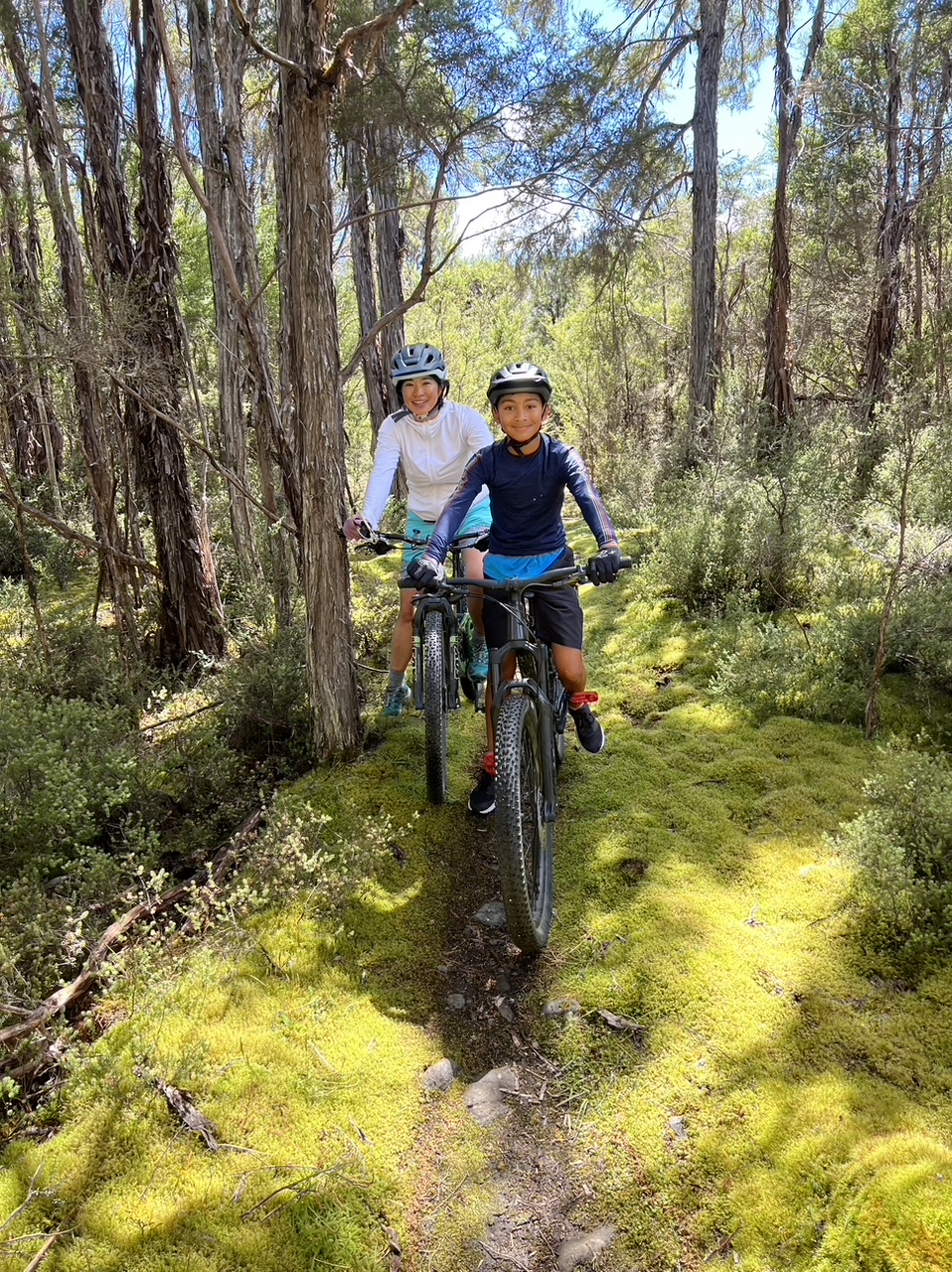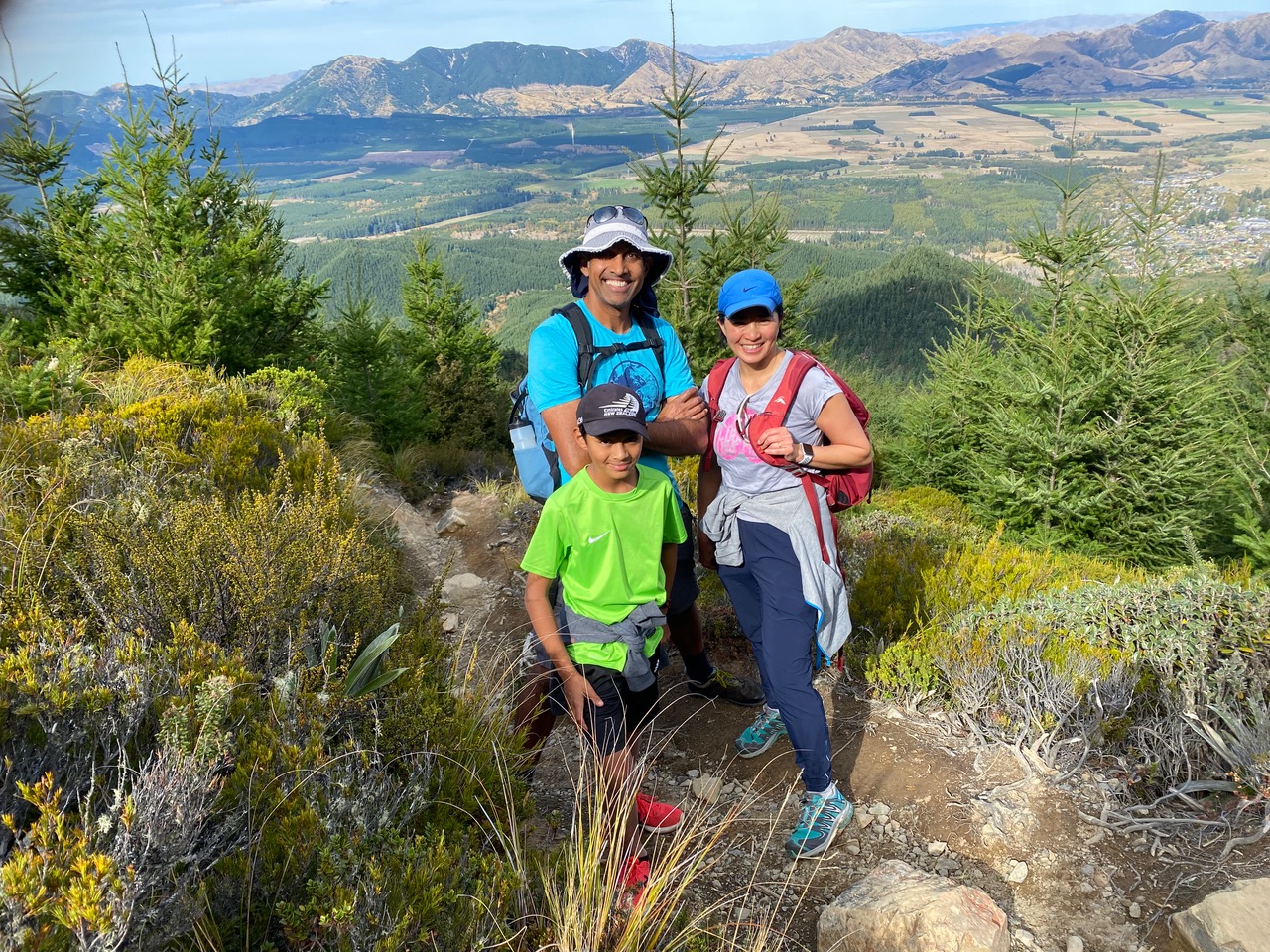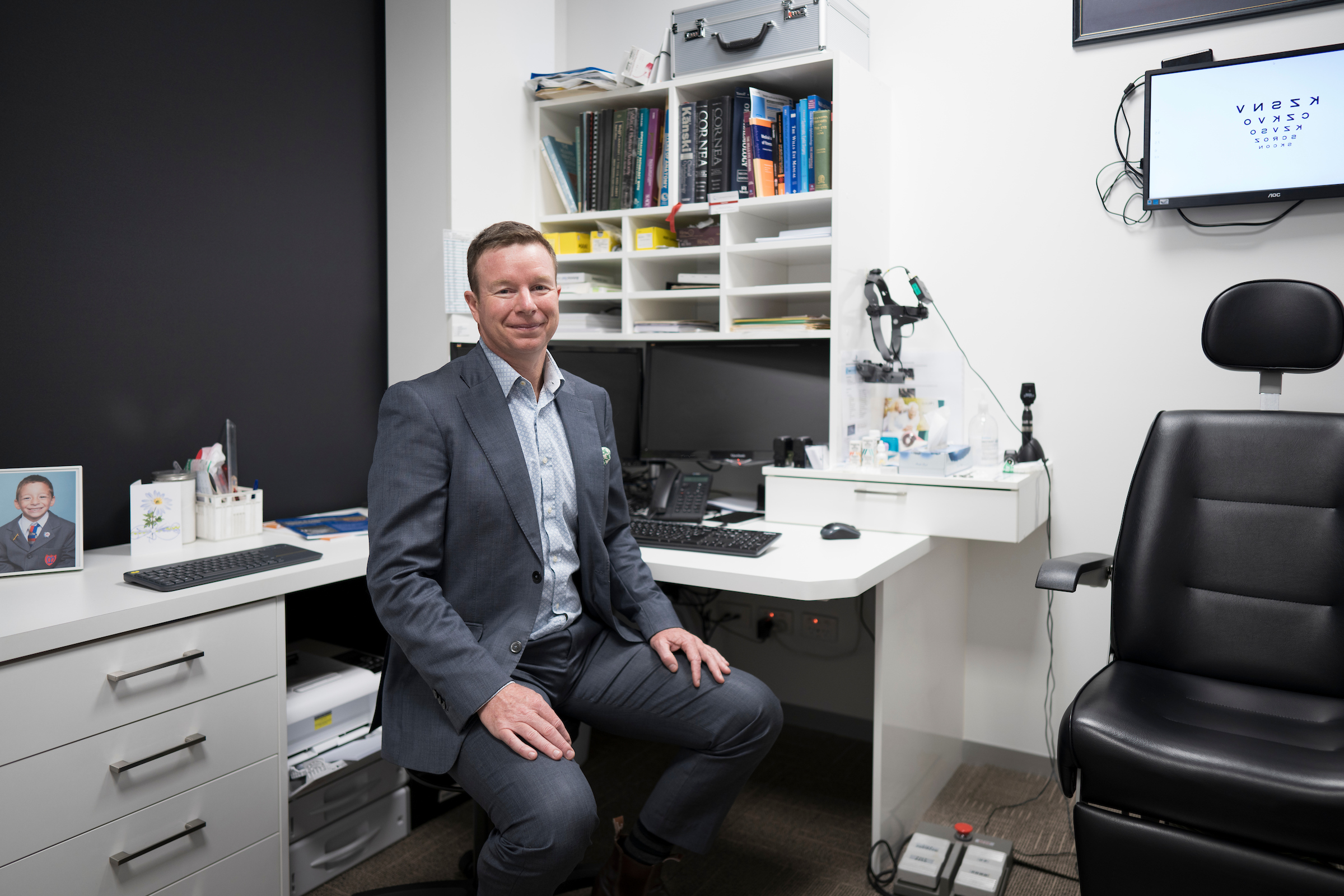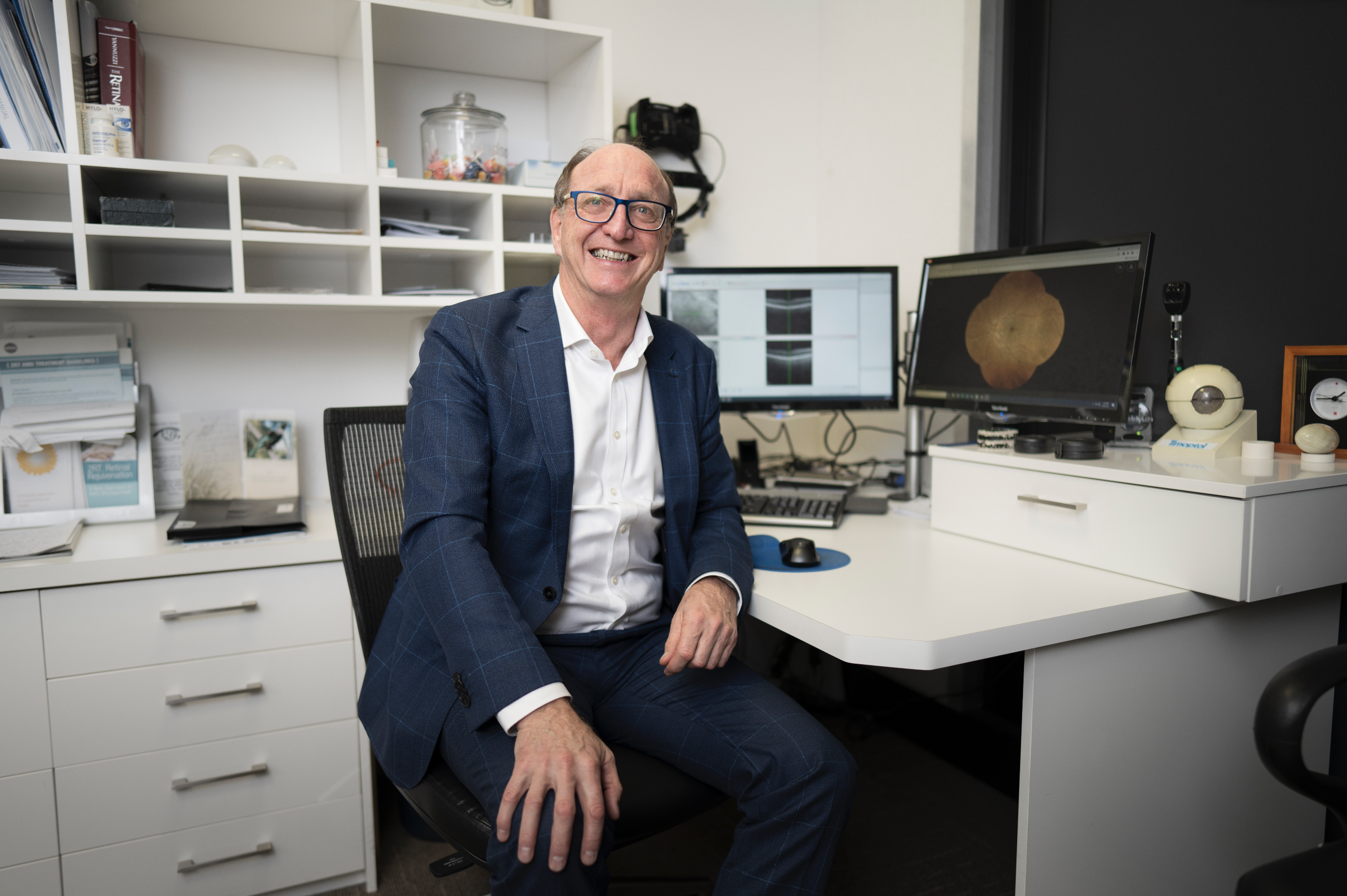Dr Jo-Anne Pon
Oculoplastics, cataract, neuro-ophthalmology,
strabismus, general ophthalmology
MB ChB, FRANZCO
Dr Jo-Anne Pon is a consultant ophthalmologist with subspecialty interests in oculoplastics, neuro-ophthalmology and strabismus. She is also an experienced cataract surgeon.
She is a director here at Southern Eye Specialists and is also involved with registrar training and education At The Eye Clinic at Christchurch Hospital, where she jointly leads the neuro-ophthalmic service. Her main interest is in the management of eyelid malignancies and reconstruction, cataract surgery, neuro-ophthalmology and strabismus.
The point of view
Some doctors might deliver abstraction and pontificating when asked why they joined the profession. For Dr Jo-Anne Pon the answer is clear-cut. “I wanted to do something to help people,” she says. “And I’m no good at art… and I’m not great with numbers!
Be it within a diagnosis, or during an interview, there’s a reason such straightforward responses are a ‘breath of fresh air”. It’s Jo-Anne’s easy-going manner and carefully considered answers that are so refreshing for her patients (and for the occasional interviewer too).
“I like to be able to do something everyday that can help someone,” says Jo. “There’s so much job satisfaction being able to do something that can make such a positive difference in people’s lives.”
“In some ways it was really lucky as it does suit my personality,” she says. “After all, when you’re eighteen and leaving school, what do you really know about the big wide world? You’re often making these decisions the implications of which you can’t possibly know. Thankfully I arrived at it (medical training) somewhat intuitively.”
This training took place in South Africa before she arrived in New Zealand in 1998 to seek out a career here. After undertaking ophthalmology training in Dunedin, Hamilton, Auckland and Christchurch she then spent a year as a Senior Registrar at Melbourne’s Royal Victorian Eye and Ear Hospital.
From there her fellowship took her to the Vancouver General Hospital in Canada, where she did further training in oculoplastics and neuro-ophthalmology.
“Neuro-ophthalmology involves anything to do with the optic nerves and any issues that involve the vision pathways in the brain”
In 2010 she returned to Christchurch and took up work as a consultant ophthalmologist. While described as “one of the nicest doctors at SES”, Jo-Anne is also highly regarded for her diligence and overall expertise.
“She is often doing lots of investigation on patients with rare problems to work out how best to treat them,” says a colleague.
Jo-Anne has a reputation for being “a true general ophthalmologist”, as she has, as another colleague states, “the skills to handle just about any eye problem and the expertise to undertake some of the hardest ophthalmology work.” This expertise involves efforts in three main specialist areas neuro-ophthalmology, oculoplastics and strabismus.
“Neuro-ophthalmology involves anything to do with the optic nerves and any issues that involve the vision pathways in the brain,” she says.
“Visual field problems can be caused by a neurological condition, which may impact on whether a patient can drive or not. Or it may be that there are brain tumours that are compressing on parts of the vision pathways.”
While patients can initially present with vision problems there can be something far more serious behind the symptoms. Sometimes Jo-Anne will be the first to makes such a diagnosis.
“Of all ophthalmology sub-specialties, neuro-ophthalmology has the highest chance of conditions that can be fatal,” she says. “So there’s lots of scary stuff to deal with and, sometimes, some very sad and challenging situations.”

“I’m never going to be someone who pretends to know everything. I’m always happy to acknowledge that when the occasional unusual case presents itself.”
The dedication to uncovering the source of an issue is always interesting to the busy doctor, Jo-Anne stating that “you’re almost like a detective with how you go about problem solving.”
She also regularly works in oculoplastics (“I treat the lid tumours, malignancies and benign spots, with removal and reconstruction and other eyelid conditions such as droopy eyelids and inturned eyelids”), and strabismus – which is when eyes are misaligned.
The latter is again a condition requiring thorough investigation.
“It (strabismus) can be a childhood developmental issue or it could be heralding something that’s going on in the brain, which will affect the muscles meant to keep the eyes aligned and then might cause double vision. Or it could be trauma related.”
The intricate and high-stakes work benefits from Jo-Anne’s overall ‘ego-lite’ approach.
“I feel so lucky to have such great relationships with all of my colleagues. I know that if I have a difficult time I can go to them to get a second opinion. It’s beneficial for my patients.”
“I’m never going to be someone who pretends to know everything. I’m always happy to acknowledge that when the occasional unusual case presents itself,” she says. “I might be able to find the right answer or I might need to go get help. Irrespective, I’m going to do everything in my power to find that answer.”
“Before seeing me, some testing and work-up may be required. The patient might need to see an orthoptist, have a visual field test, a scan, a photograph. That’s one thing people may not realize – how much of a team effort this is.”
This team-based approach to patient care is vital to get it right.

“Optometrists are well trained and their referral letters are really helpful. They will often provide the information we need. We have nurses and technicians to test and work-up our patients and we’re all backed by the diligence of our secretaries and admin staff.”
It is a sense of community that extends to her ongoing patients, who she might need to see one or two times a year.
“That’s a big part of the job satisfaction,” says Jo-Anne. “Even if it’s just for ten or fifteen minutes it’s important to make a connection, so a patient doesn’t feel like they’re just a pair of eyes,” she says. “We understand the complexity of their lives and want them to be able to make the most of their vision.”
It’s for this reason that she finds cataract surgery so immensely rewarding, “when people hug me and tell me that I’ve changed their life that’s so humbling.”
Along with the achievement comes the regular challenge of managing an extremely busy clinical workload, one that is increasing industry-wide says Jo-Anne.
“It’s also nice to see recognition that a work/life balance is actually incredibly healthy. In days gone by, it felt like if you didn’t work hard enough there would eyebrows raised and you would be judged. There simply wasn’t the recognition that a proper balance meant you could actually perform better in your work.”
Away from the clinics she’s focusing on a different kind of performance, finding the time to fall back in love with music.

“…there’s just so much to love about NZ – so much freedom to move and so many places to see.”
“I learned the piano as a kid and now I’m learning to play the cello,” she says. “I started to support my son, who was 14 when he began. Initially I was streets ahead – but within two years he leap-frogged me.”
While she has been in NZ for a long time, and misses family in South Africa, she wouldn’t trade places as “there’s just so much to love about NZ – so much freedom to move and so many places to see.”
“I’m quite interested in sustainable living and I really like driving an electric car,” she says.
“Even if it’s just for ten or fifteen minutes it’s important to make a connection, so a patient doesn’t feel like they’re just a pair of eyes. We understand the complexity of their lives and want them to be able to make the most of their vision.”

Meet Dr John Rawstron

Meet Dr Jim Borthwick